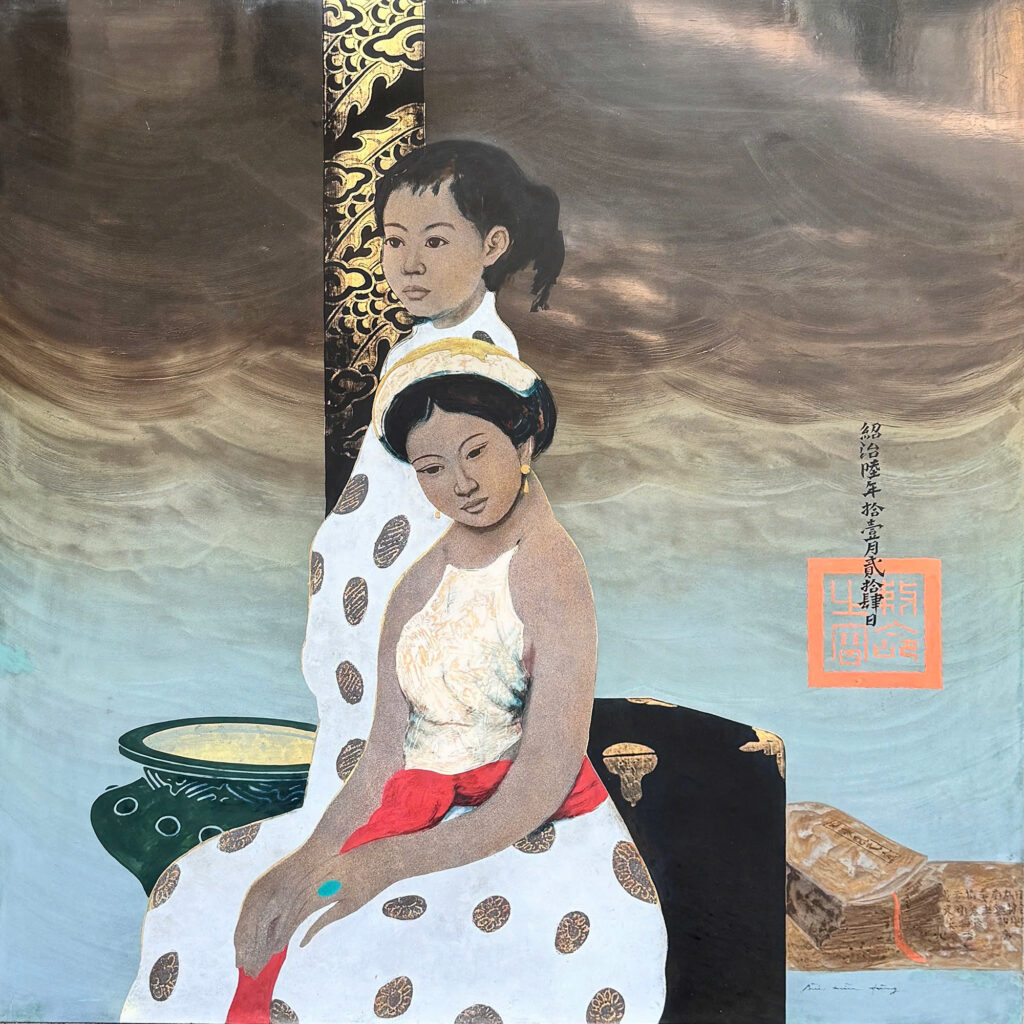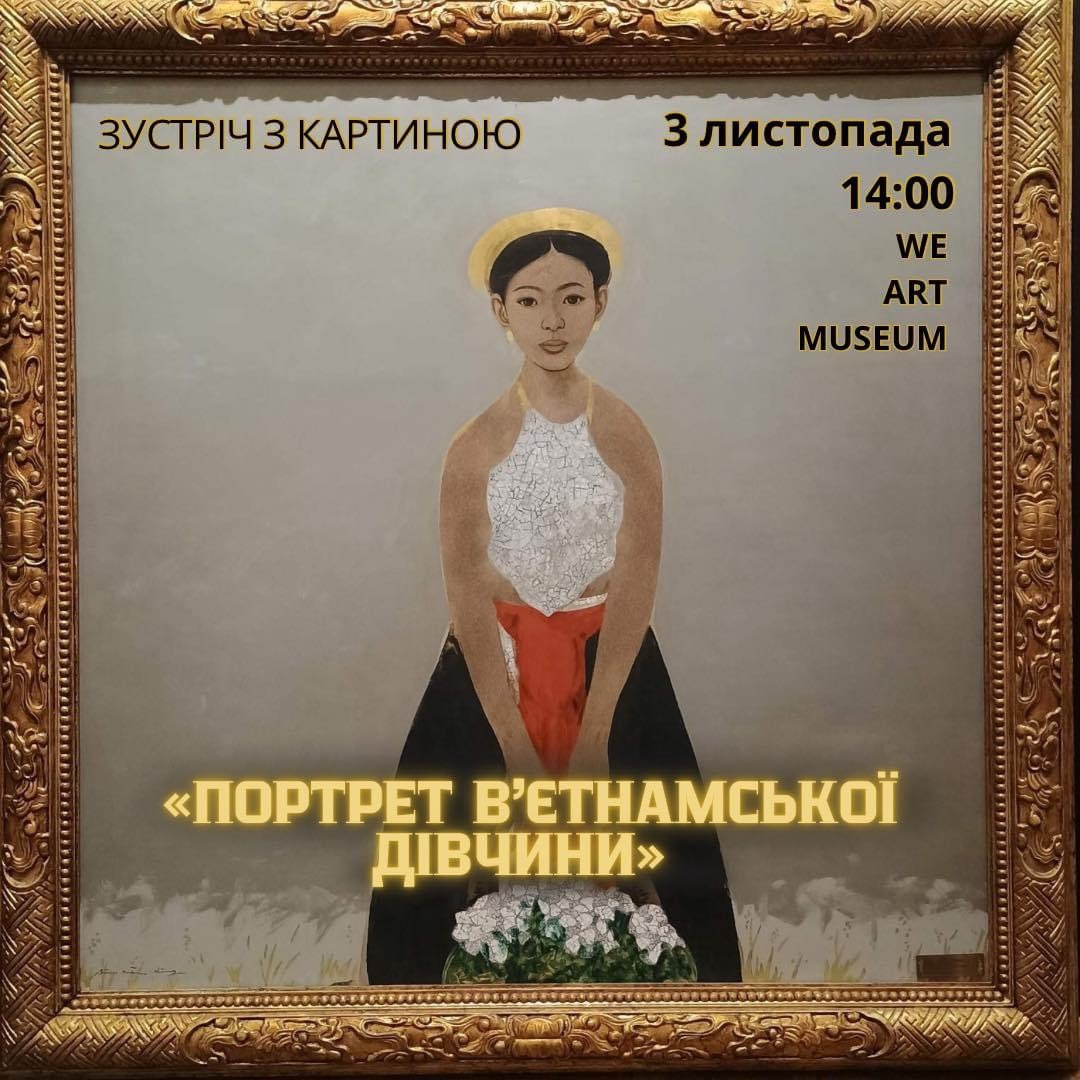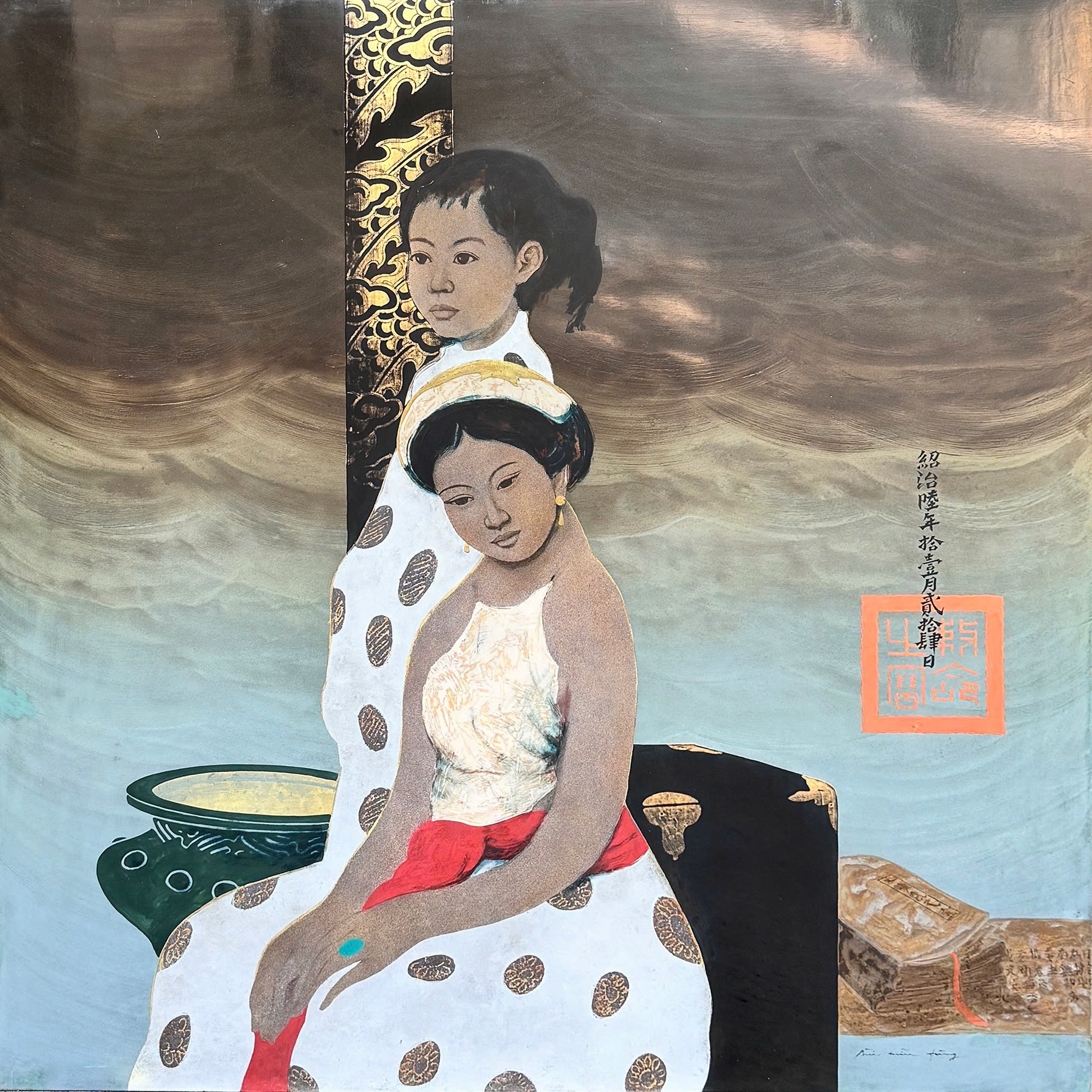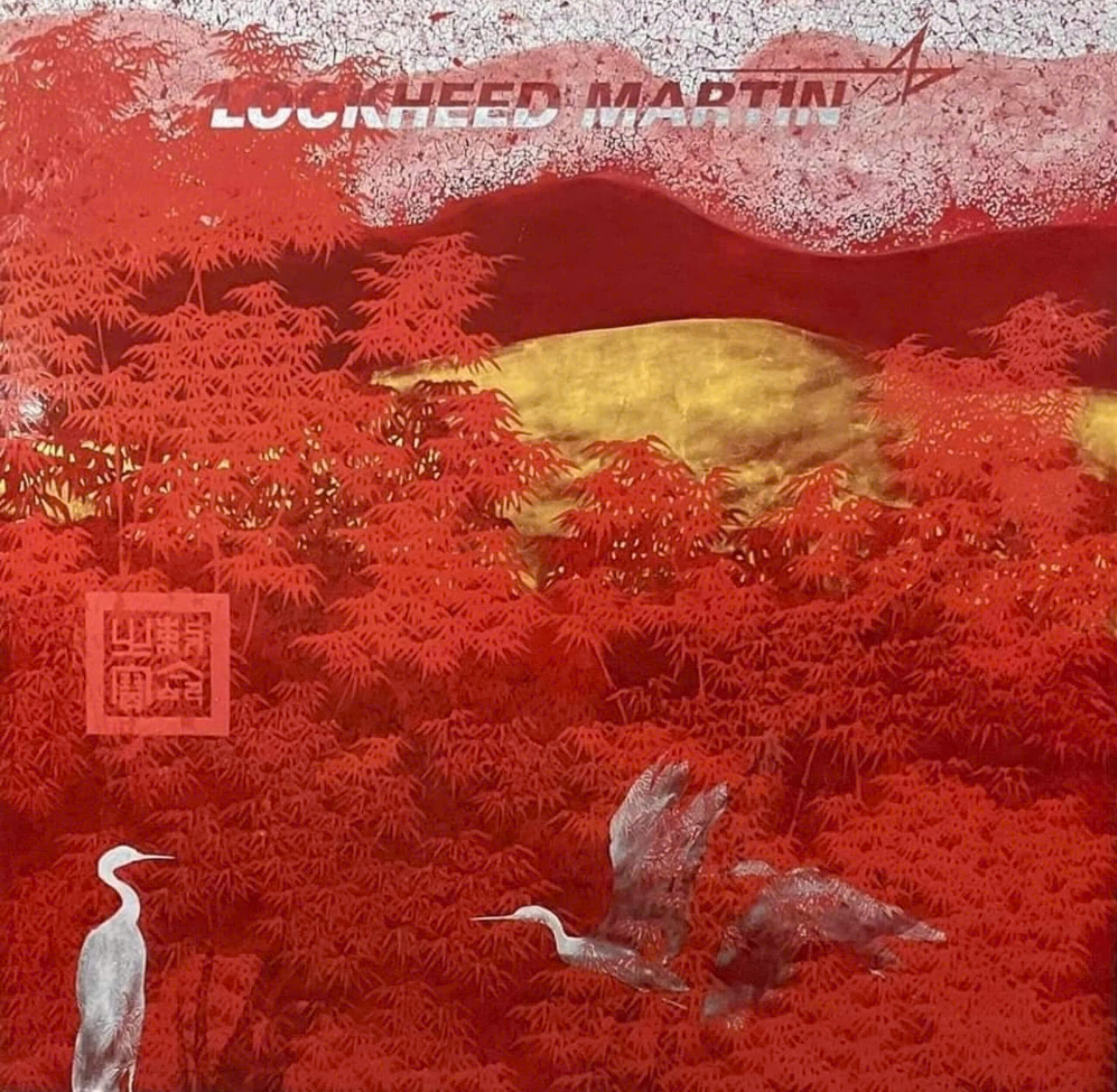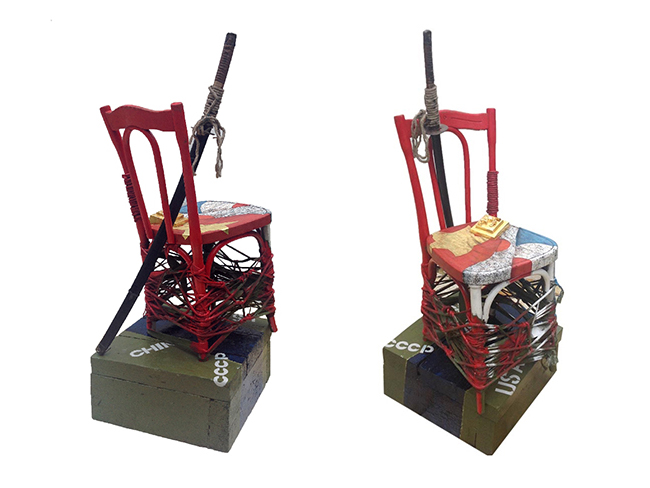Bui Huu Hung’s artwork “Two People” is presently exhibited at Corona Resort & Casino Phu Quoc.
The inscription on the painting Two people is “Thiệu Trị, sixth year, 15th day of the 11th month.” The historical context of Vietnam at that time may give art lovers additional reflections.
Emperor Thiệu Trị (1807-1847), the third king of the Nguyễn Dynasty, left a unique legacy across many domains during a complex period in Vietnamese history. As the eldest son of Emperor Minh Mạng, Thiệu Trị ascended to the throne in 1841, a time when traditional values faced mounting pressure from Western nations and internal matters required strengthening.
Emperor Thiệu Trị is described as a kind, compassionate ruler who was devoted to Confucian teachings. He loved literature, poetry, and was a talented poet himself. His works often praised the landscapes of his homeland, a love for nature, and a strong sense of national pride. Thiệu Trị’s poetry possesses artistic merit while expressing his compassion for the people and reflecting his concerns about the country’s fate and the rising threat from foreign powers.
Thiệu Trị ruled for only seven years. Despite the significant challenges of his era, he left behind a legacy of kindness, calmness, and wisdom—qualities that Vietnamese history continues to honor.
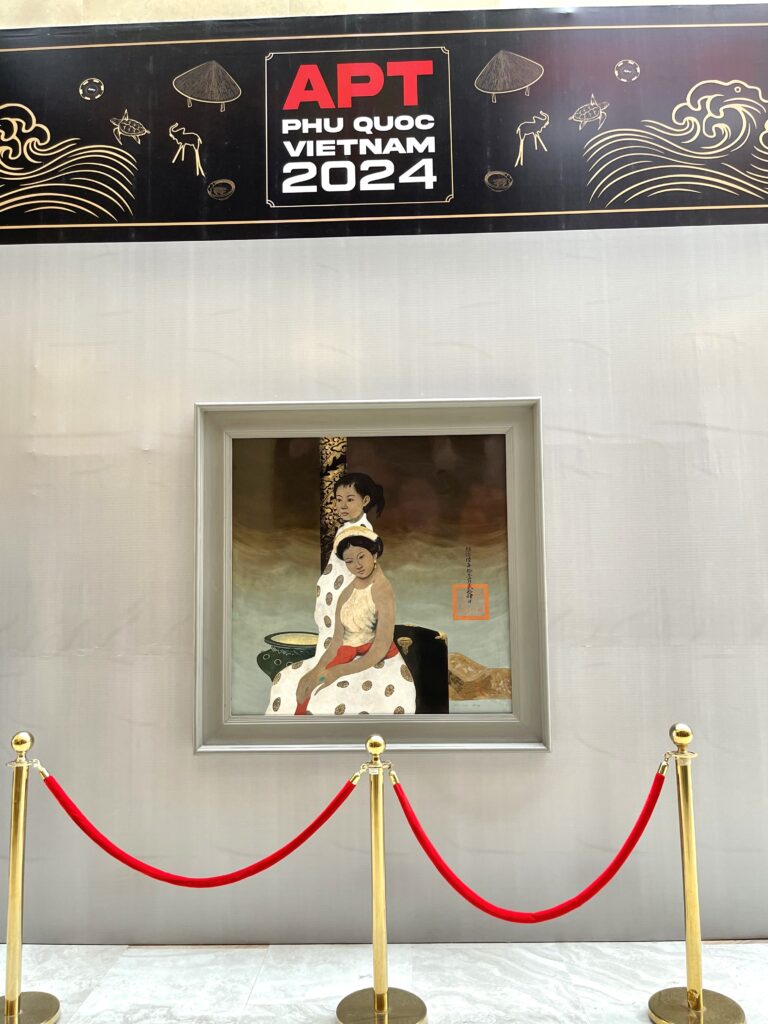
The sixth year of Thiệu Trị’s reign, or 1846, was a time of political, diplomatic, and cultural turmoil in Vietnam. Thiệu Trị succeeded Emperor Minh Mạng and continued the Nguyễn Dynasty’s firm policies to preserve Confucian culture and ethics, even as Western nations, especially France, increased their interventions.
In foreign affairs, several European countries began pushing to expand influence in Vietnam through religious missions and trade. Tensions arose with Western missionaries as the court enforced strict policies against the spread of Christianity, which led to conflicts and religious persecution. The Nguyễn court believed Christianity would have a destabilizing effect on the country’s culture and political system, fearing it might weaken the people’s loyalty to the throne.
Domestically, the Nguyễn Dynasty under Thiệu Trị pursued policies that encouraged agriculture and upheld Confucian values. The emperor organized examinations and expanded the construction of temples and cultural sites. However, frequent natural disasters, such as floods and poor harvests, created hardship for the people, placed financial strain on the state budget, and led to public discontent.
The sixth year of Thiệu Trị’s reign was a challenging period, marked by tensions between preserving traditional values and the pressure to open up, as well as between protecting the court’s authority and contending with external influences.
